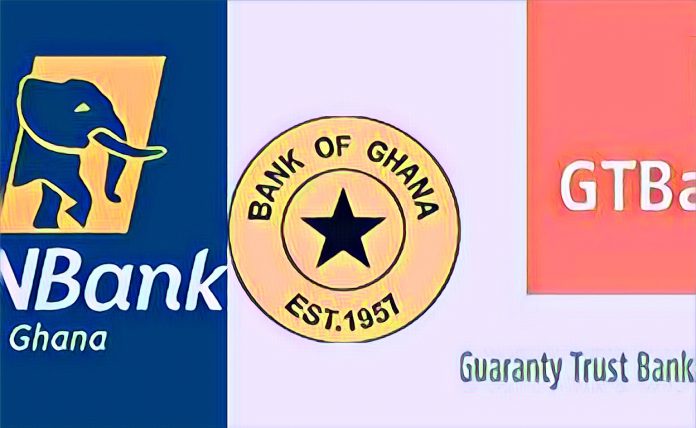Nigerian banks operating in Ghana are working with the Bank of Ghana (BoG) to resolve the suspension of foreign exchange trading imposed on them last week.
The BoG suspended Access Bank Ghana, Guaranty Trust Bank Ghana, First Atlantic Bank, and United Bank for Africa Ghana from participating in the interbank foreign exchange market for violating the Foreign Exchange Act 2006.
The BoG accused the banks of engaging in “offshore foreign exchange deals” that involved the repatriation of export proceeds to their parent companies in Nigeria, without the approval of the BoG.
The BoG said the suspension, which took effect on September 13, would last for six months, and that it would monitor the compliance of the affected banks during the period.
The Nigerian banks, however, have denied any wrongdoing, saying they followed the rules and regulations of the BoG and the Ghanaian government.
They also said they were in talks with the BoG to clarify the issues and resolve the matter amicably.
“We are engaging with the BoG to understand the nature and extent of the alleged infractions and provide the necessary explanations and documentation to address the concerns raised,” Access Bank Ghana said in a statement.
“We wish to assure our customers and stakeholders that we remain committed to complying with all regulatory requirements and directives in Ghana, and to supporting the economic development of the country,” the statement added.
Similarly, Guaranty Trust Bank Ghana said it was cooperating with the BoG and providing the required information and documents to clear any misunderstanding.
“We wish to reiterate that we have not engaged in any offshore foreign exchange deals, and that all our foreign exchange transactions are done in accordance with the laws and regulations of Ghana,” the bank said.
The bank also assured Its customers and stakeholders that the suspension would not affect its operations and services, and that it would continue to provide seamless banking solutions to its customers.
First Atlantic Bank and United Bank for Africa Ghana also issued statements expressing their readiness to work with the BoG to resolve the issue and restore normalcy to their foreign exchange operations.
The suspension of the Nigerian banks has raised concerns about the impact on the Ghanaian economy, especially the foreign exchange market, which is already facing liquidity challenges and volatility.
The BoG has assured the public that the suspension would not disrupt the foreign exchange market, and that it would continue to ensure stability and transparency in the market.
The BoG has also urged the public to report any suspected cases of offshore foreign exchange deals to the Financial Stability Department of the BoG for investigation and appropriate action.
The Nigerian banks are among the 23 commercial banks operating in Ghana, and account for about 11% of the total assets of the banking sector, according to the BoG.
Source: BusinessDay



